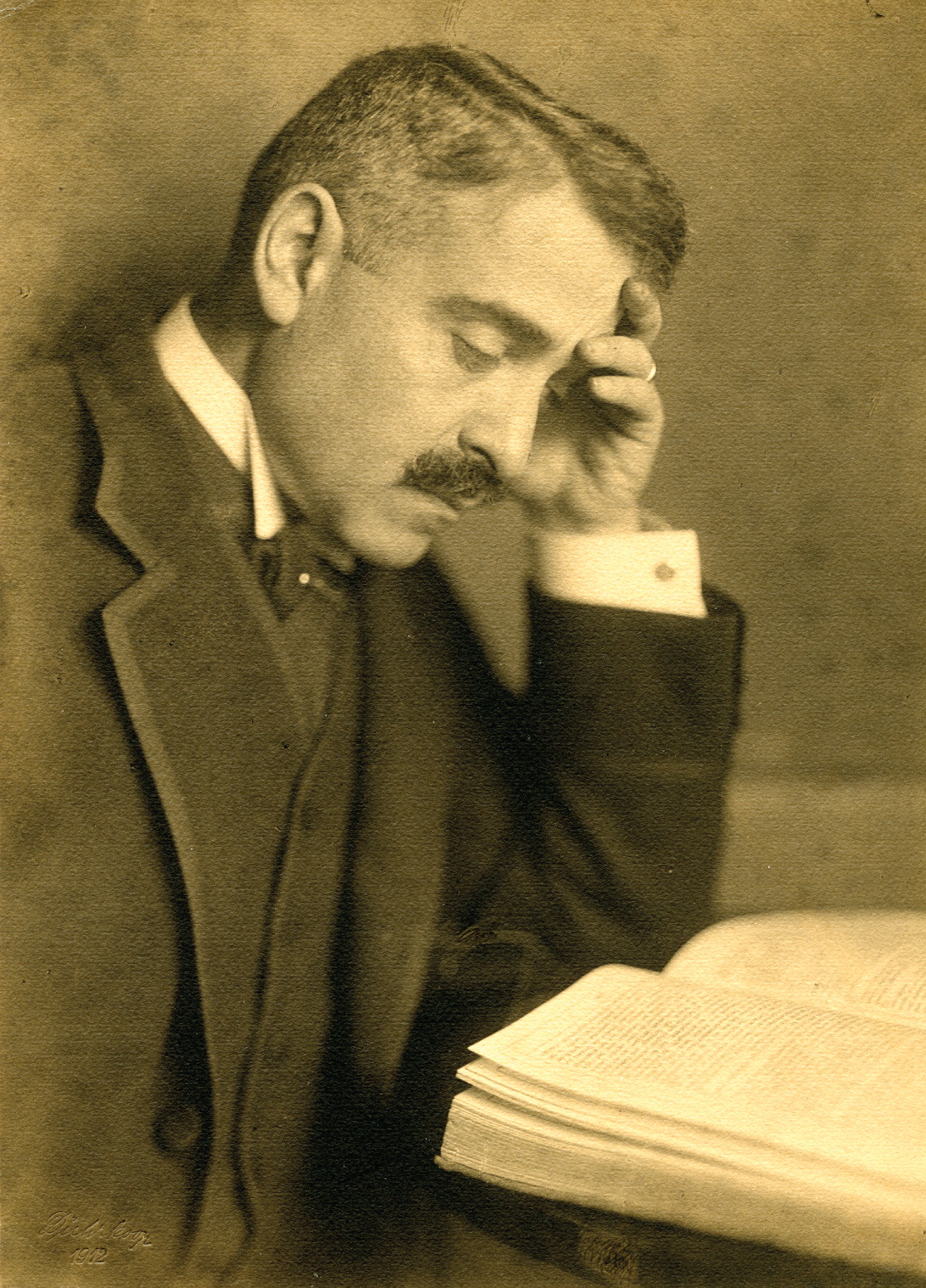On April 16, 1921, Aby Warburg—a member of the Warburg financial dynasty who was of German Jewish origin and an influential art historian—was admitted to the Binswanger's Belle Vue clinic in Kreuzlingen, Switzerland, with a diagnosis of schizophrenia (
1). Although schizophrenia was considered to invariably have a dismal prognosis, the diagnosis was subsequently challenged by Emil Kraepelin, who at the time was the recognized authority on this subject in Europe. Kraepelin changed the diagnosis to a mixed manic-depressive state and anticipated a gradual improvement in the patient's clinical condition.
Given Warburg's mastery of art history and criticism, Hans Prinzhorn—a German psychiatrist renowned for his keen interest in the border between mental illness and artistic production—decided to pay him a visit. Prinzhorn and Warburg talked “keenly and thoroughly about symbology,” according to the clinical records (University of Tübingen historical archive, item UAT 441/3782). The concept of “symbol” was at the core of Warburg's theory of art since its beginning. Indeed, he constructed a typology of symbols and gestures signifying intense emotion, which he termed “pathos formulae.” The pathos formulae expressed the traumatic conflict between the ego and the external world, relying on Nietzsche's dichotomy between the chaotic Dionysian and the harmonic Apollonian, which represented a dynamical balance between the two main forces competing for dominance in the human personality.
In accordance with Kraepelin's predictions of a good prognosis, Warburg resumed studying art while he was still staying in Binswanger's clinic. Convinced of his own recovery, he proposed holding an academic lecture in the clinic titled “Images from the Region of the Pueblo Indians of North America,” which took place on April 21, 1923. With this renowned presentation (“Lecture on the Serpent Ritual”), Warburg intended to demonstrate that he could resume a normal life as an art scholar despite the mental illness that kept him away from his library for 6 years. In a letter to his brother 1 year later, Warburg claimed to feel “a mounting internal driving force” leading to a final healing. Eventually, he was discharged from Belle Vue in August 1924. Given the conflicting diagnostic hypotheses on Warburg's mental illness, it remains unclear how much Warburg's recovery and art scholarship could have benefited from current psychopharmacological interventions.


